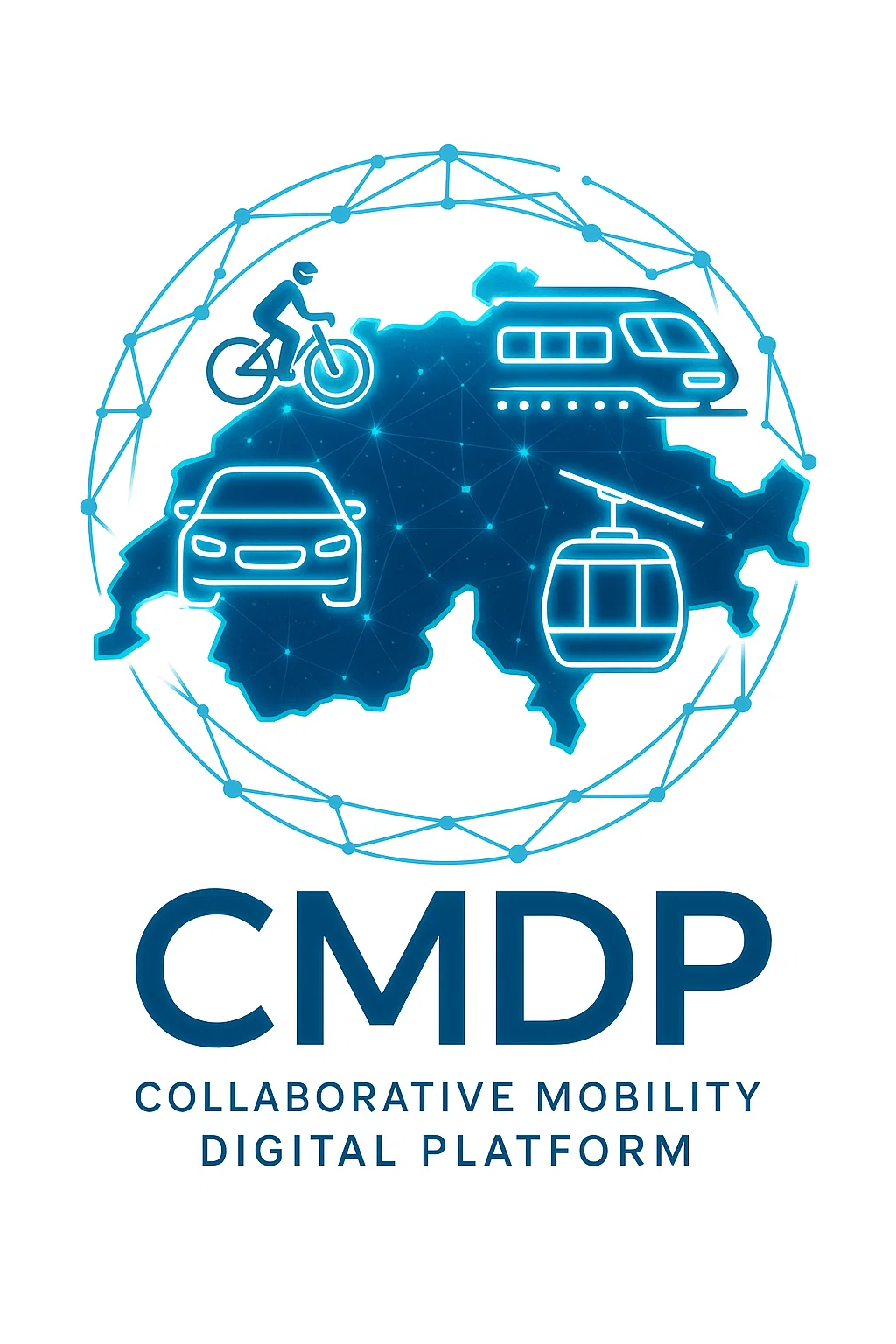A Collaborative Mobility Digital Platform: From Big Data to Zero-Emissions
CMDP, powered by agent-based modeling and cutting edge digital twin technology, will create an open-source, policy-oriented collaborative platform for understanding current and planning future mobility systems in Switzerland, with the goal of reaching net-zero climate targets.

Understanding and forecasting human mobility is essential for effective transport planning and achieving climate goals, yet current transport models in Switzerland—often aggregated, proprietary, and expensive—pose challenges by excluding smaller stakeholders, failing to support modern mobility systems like shared mobility and congestion pricing, and underutilizing real-time data sources. To address this, the CSFM Digital Twin group, in collaboration with tl, tpg, and the Ville de Lausanne, has launched an open-source, collaborative platform for mobility analysis and forecasting. This platform leverages state-of-the-art data, automates data import and model calibration, supports advanced integration of public transport with other modes, and enables policy-oriented visualizations using the agent-based simulation tool MATSim and national open research data infrastructure, paving the way for robust mobility digital twin development.
WP1: Project management
This work package is responsible for project management. This includes planning, communication with and across teams, monitoring, and team and budget management.
WP2: Documentation and reporting
This work package spans the duration of the project. It will deliver the progress reports after each milestone and collate and put together the documentation of tools and methods developed in each work package.
WP3: Calibration methodology
This work package will evaluate and develop transport supply and demand calibration methods in transport models, specifically for agent-based models like MATSim, to substantially reduce the model set-up and development times and resources.
WP4: Modelling public transport
This work package will improve the modeling of public transport services within the agent-based model MATSim to ensure that public transport is modeled with enough detail to support detailed planning and policy evaluations.
WP5: Standardization / Validation
This work package will co-create and innovate the standards and validation measures for a robust agent-based transport model with all stakeholders (public transport operators, cantonal offices, engineering companies, and academics). It will ensure that the tools created are trustworthy and robust, with the help and input of relevant stakeholders, thus warranting the understanding and transparency of the developed solution.
WP6: Visualization
This work package aims to develop a user-friendly visualization platform capable of displaying real-time information about public transit and rendering outputs from the tested scenarios in the digital twin. The platform will provide interactive and customizable visualizations to support decision-making.
WP7: Seasonality / Day of the week
This work package will enable the creation of agent-based transport models specific to seasonality and day of the week. The starting point will be the current average day methodology in eqasim, which will be expanded to model specific day situations. The work package will utilize the reach historical data of tpg and tl on passenger movements and numbers.
WP8: Geneva model
This work package is responsible for building and delivering the agent-based transport model for the Geneva region. It needs to apply the tools and methods developed in WPs 3, 4, 5, and 6. The model will be validated based on the measures developed in WP5. This work package's outcomes will improve the tools, methods, and standards delivered in WPs 3, 4, 5, and 6 if necessary.
WP9: Projections in transport models
Good projections of population growth, socio-demographic changes, and planned infrastructure projects are important to have powerful forecasting models. Therefore, this work package will focus on gathering such data, identifying the current practices in storing it, converting it into appropriate structures, and using it to update the transport models to the appropriate future year. This will enable us to find bottlenecks that prevent the automation of this process and to suggest ways to overcome this issue in the future.
WP10: Lausanne model
This work package will deliver a working, calibrated, and validated digital agent-based transport model for the Lausanne region. If necessary, tools and
methods developed in WP3, WP4, WP5, and WP6 will be refined based on the outcomes of this WP. The work package needs to show the approach's transferability and the capability to build a working agent-based transport model in a short time span, with the ultimate aim of reaching the one-month delivery capability.
WP11: ODTP integration
This work package integrates the tools developed within the Open Digital Twin Platform (ODTP) to enable easy deployment and use of the tools and methods developed in a state-of-the-art digital twin infrastructure.
WP12: Digital model testing through case studies
This work package will apply the developed digital platform for agent-based transport modeling to the specific case studies of interest to tpg to show the
robustness of our solution for answering transport policy-related questions.
WP13: Knowledge transfer
This work package will be used to transfer the knowledge in using the platform to tpg, Ville de Lausanne and tl. Through the joint meetings, the tutorial will be written, ensuring that the platform can be used by other interested parties in the future. The main target groups are public transport operators, cities, cantonal planning agencies, and academics.

